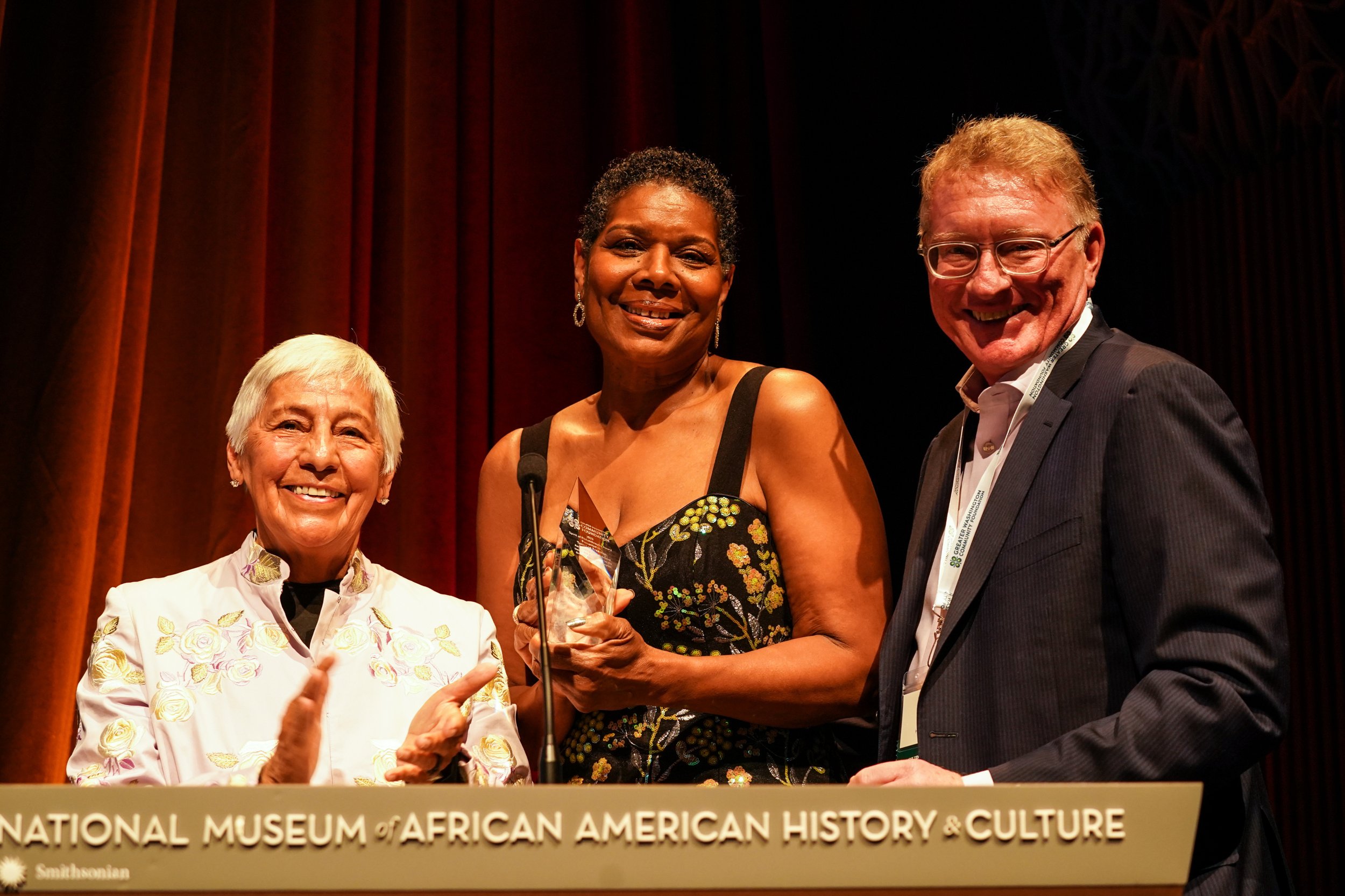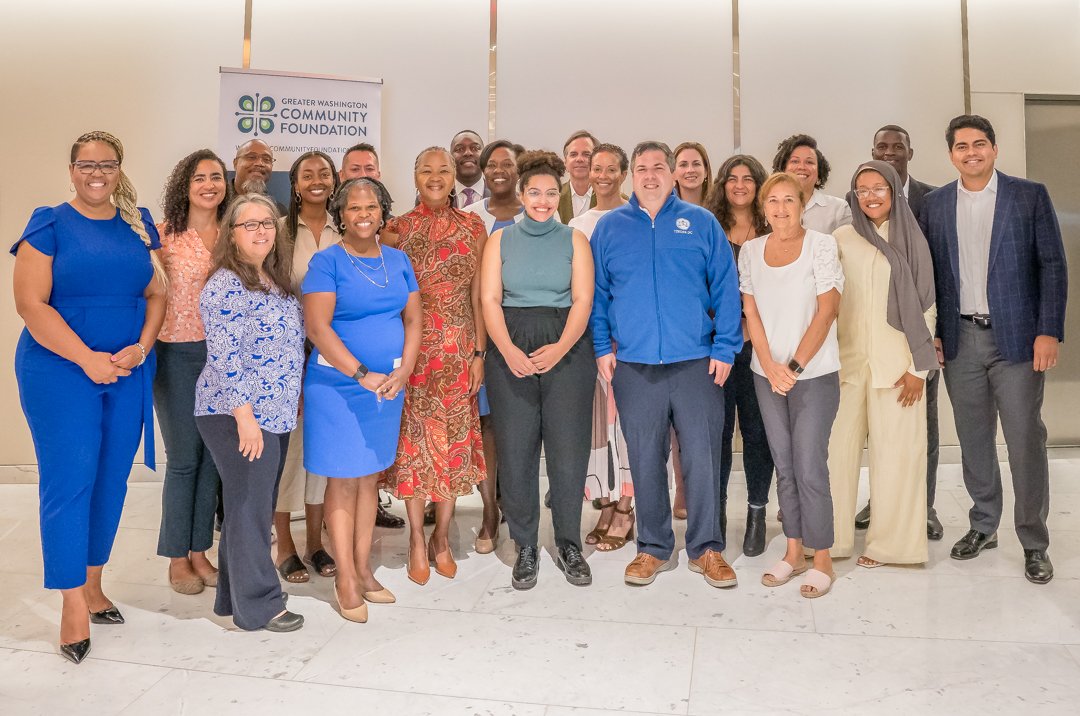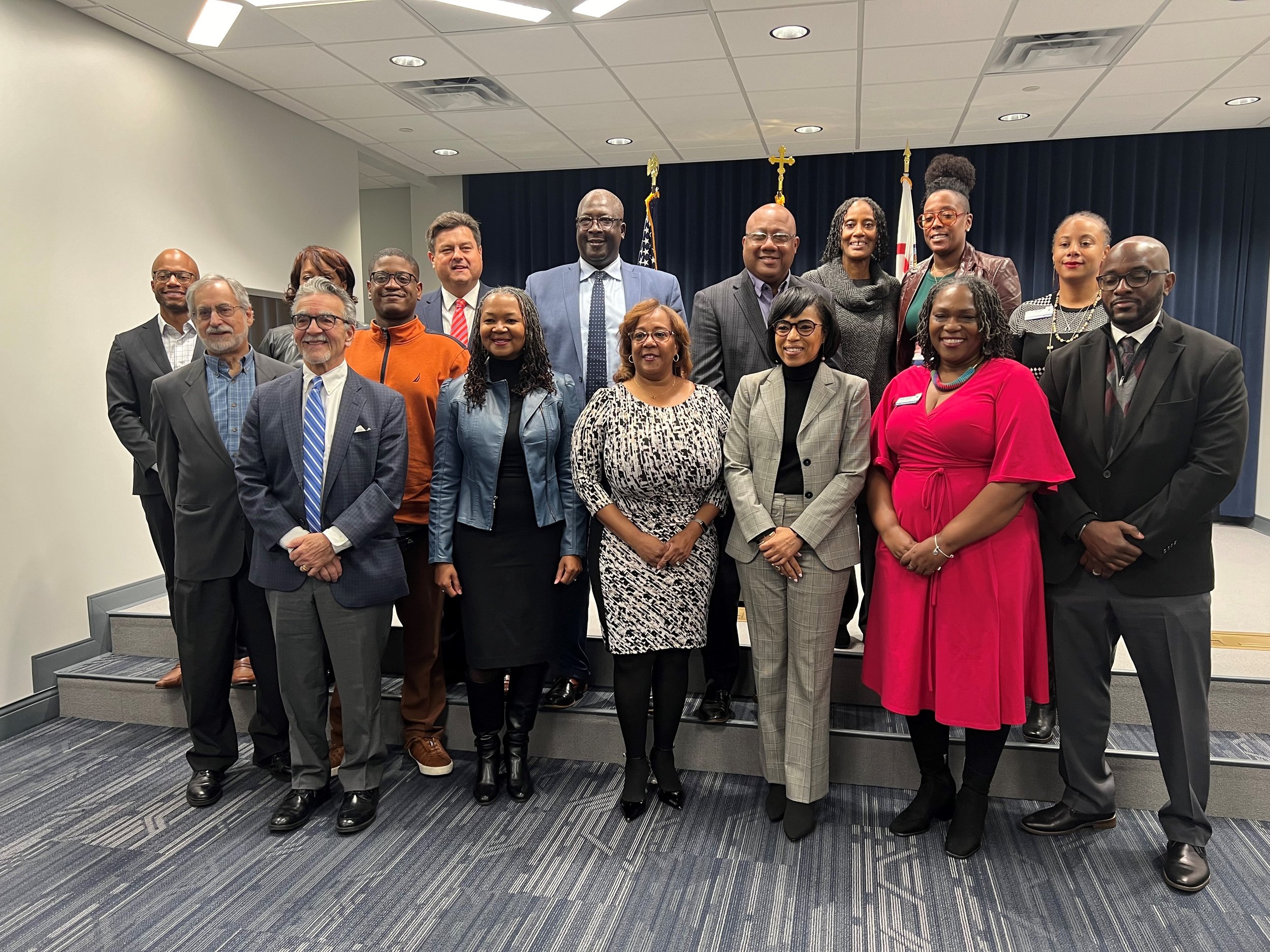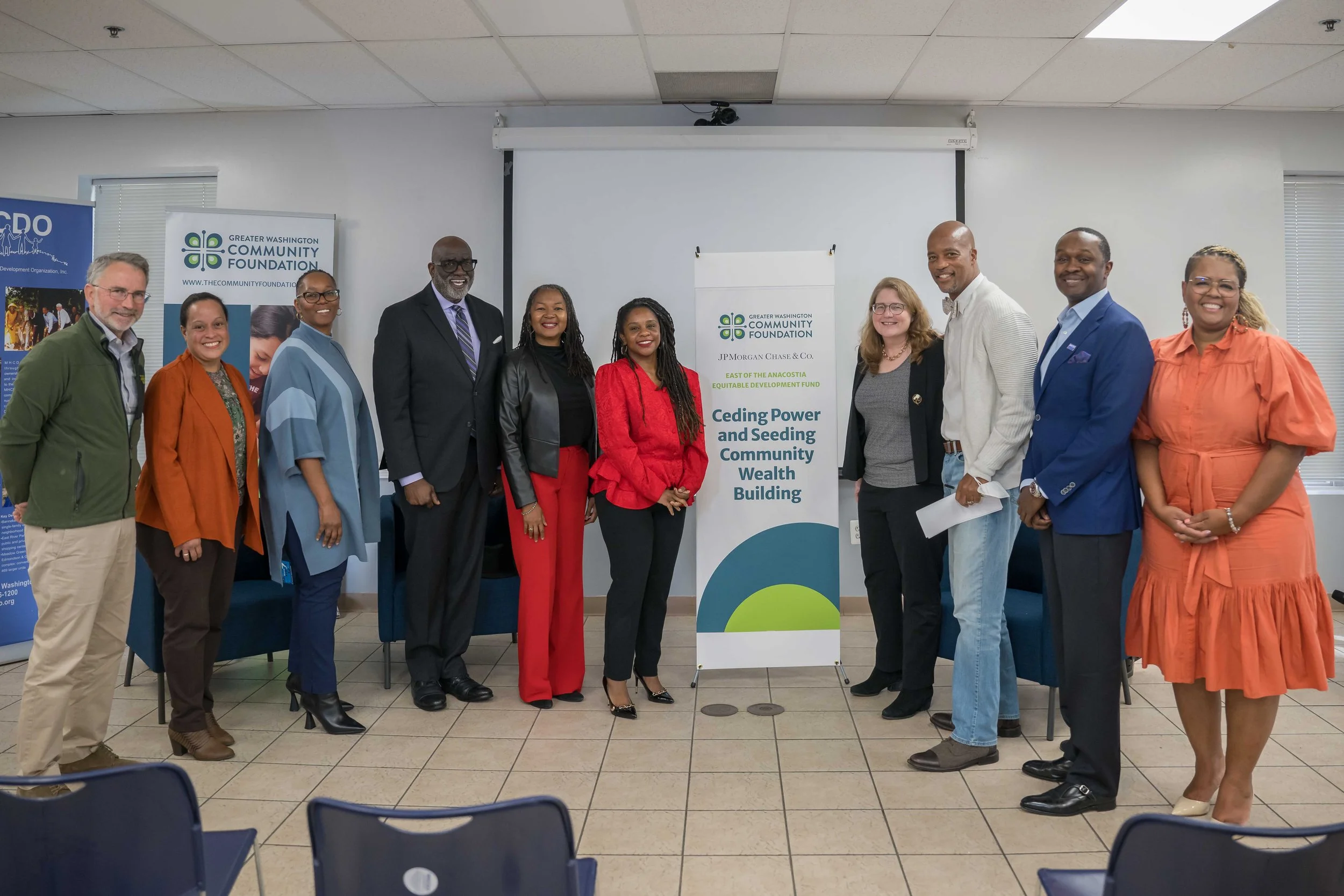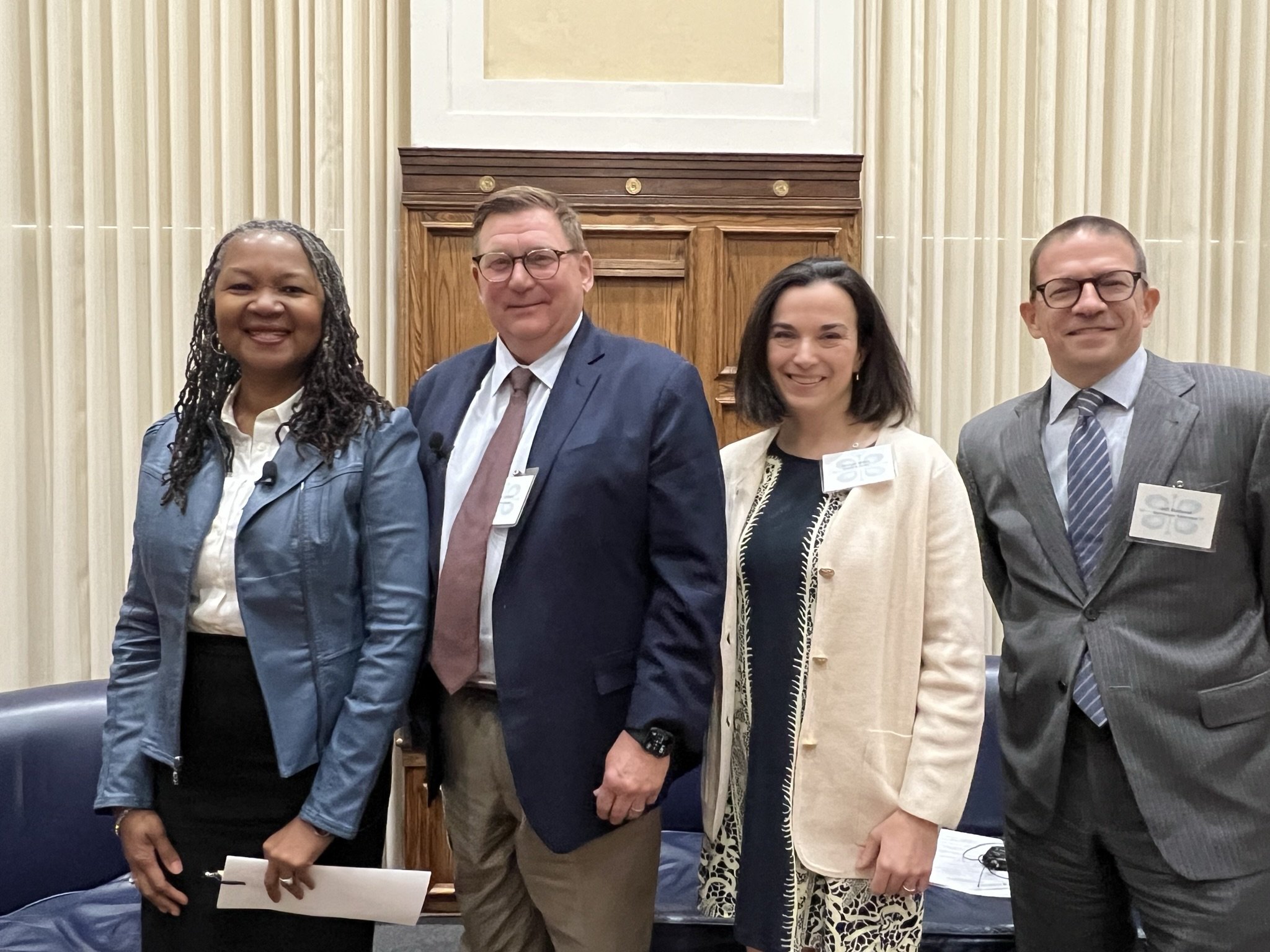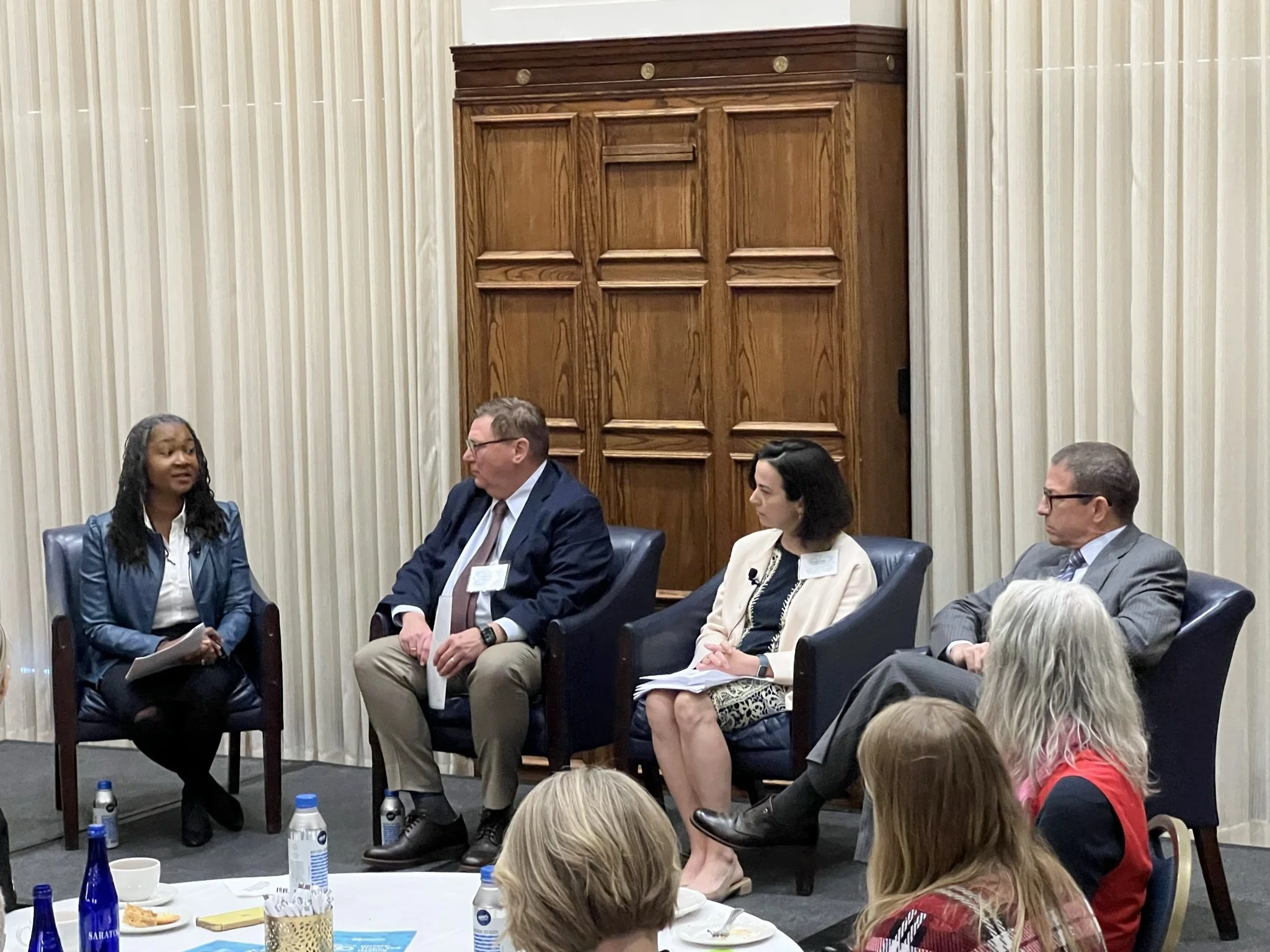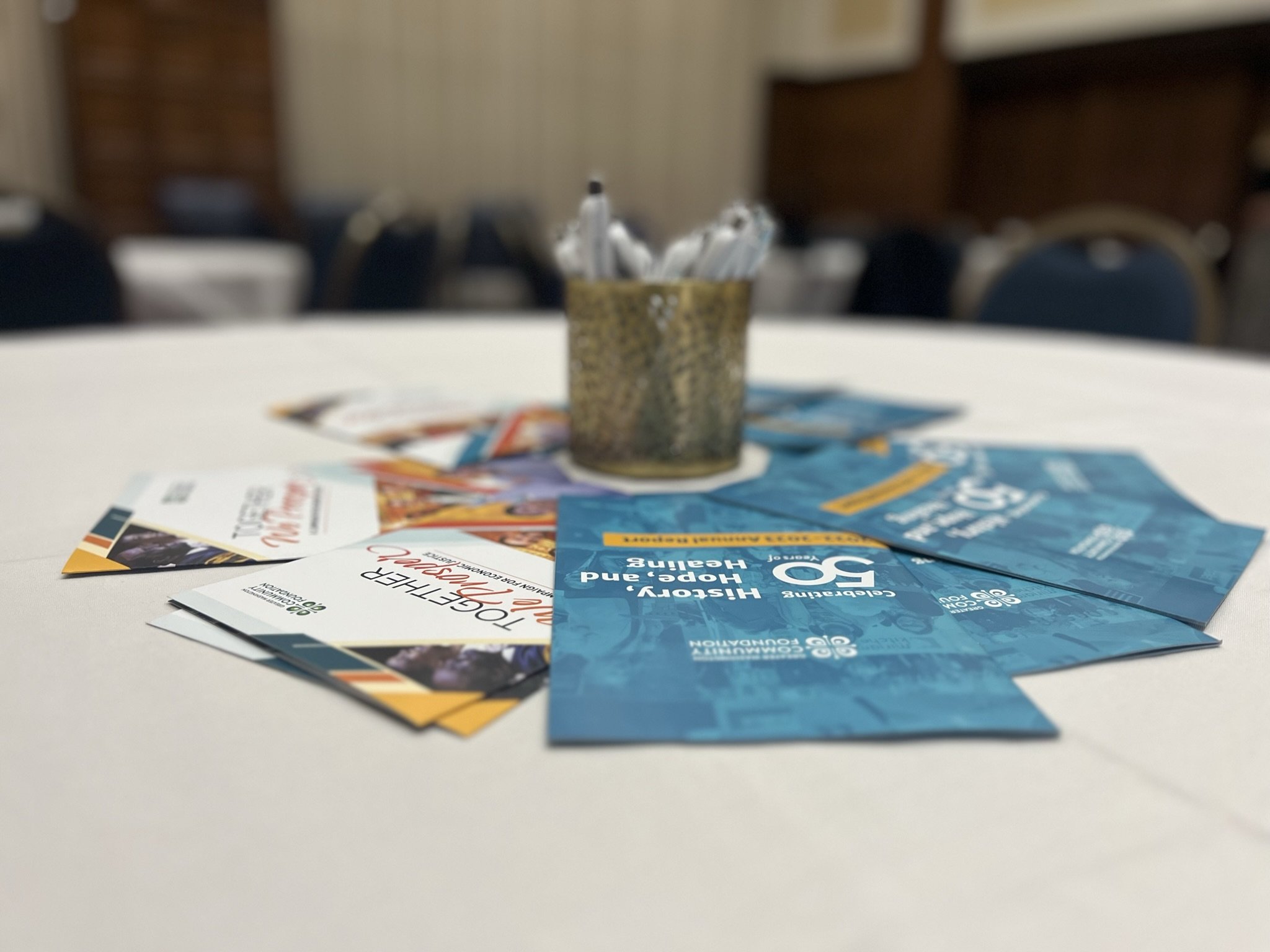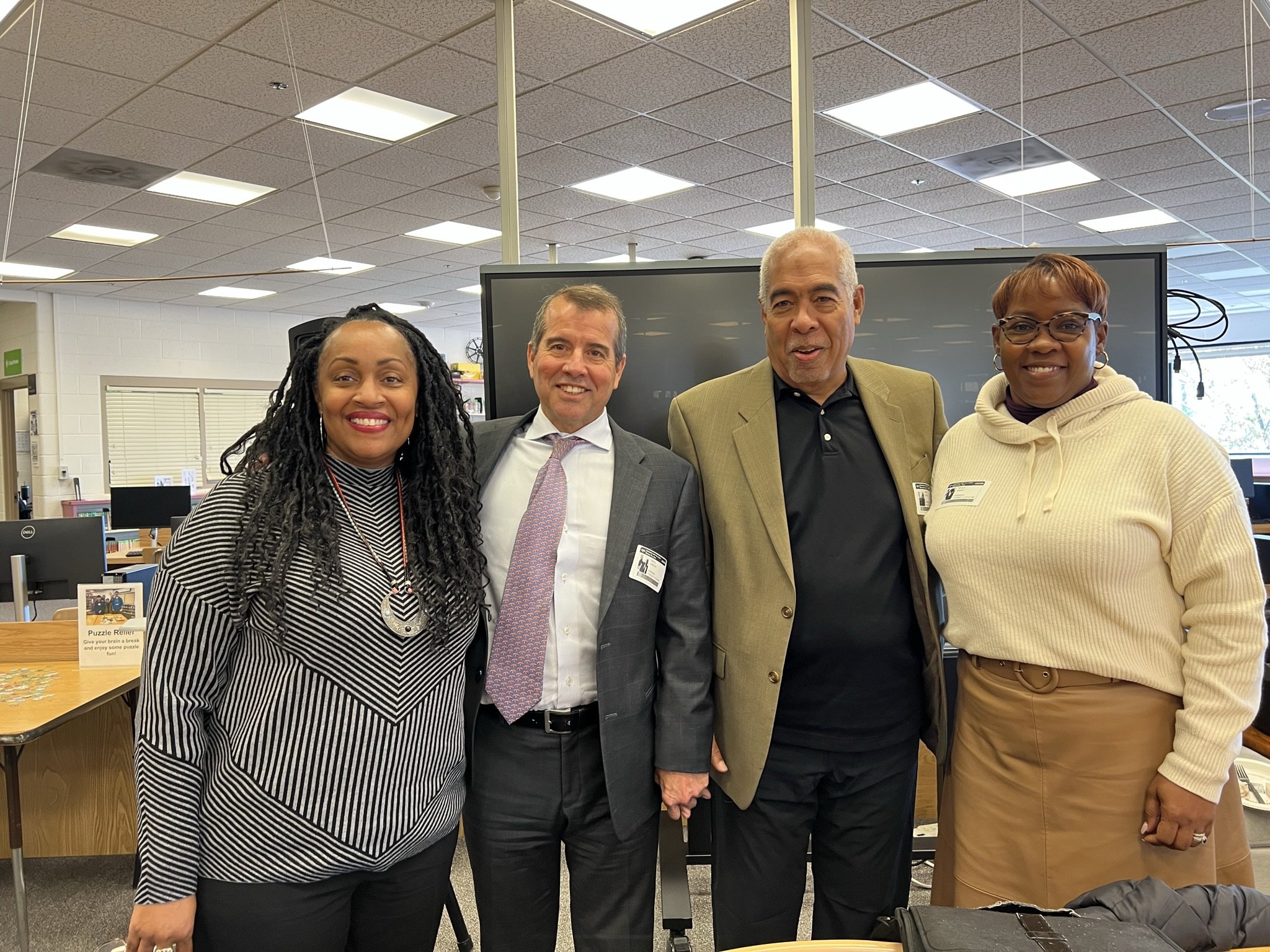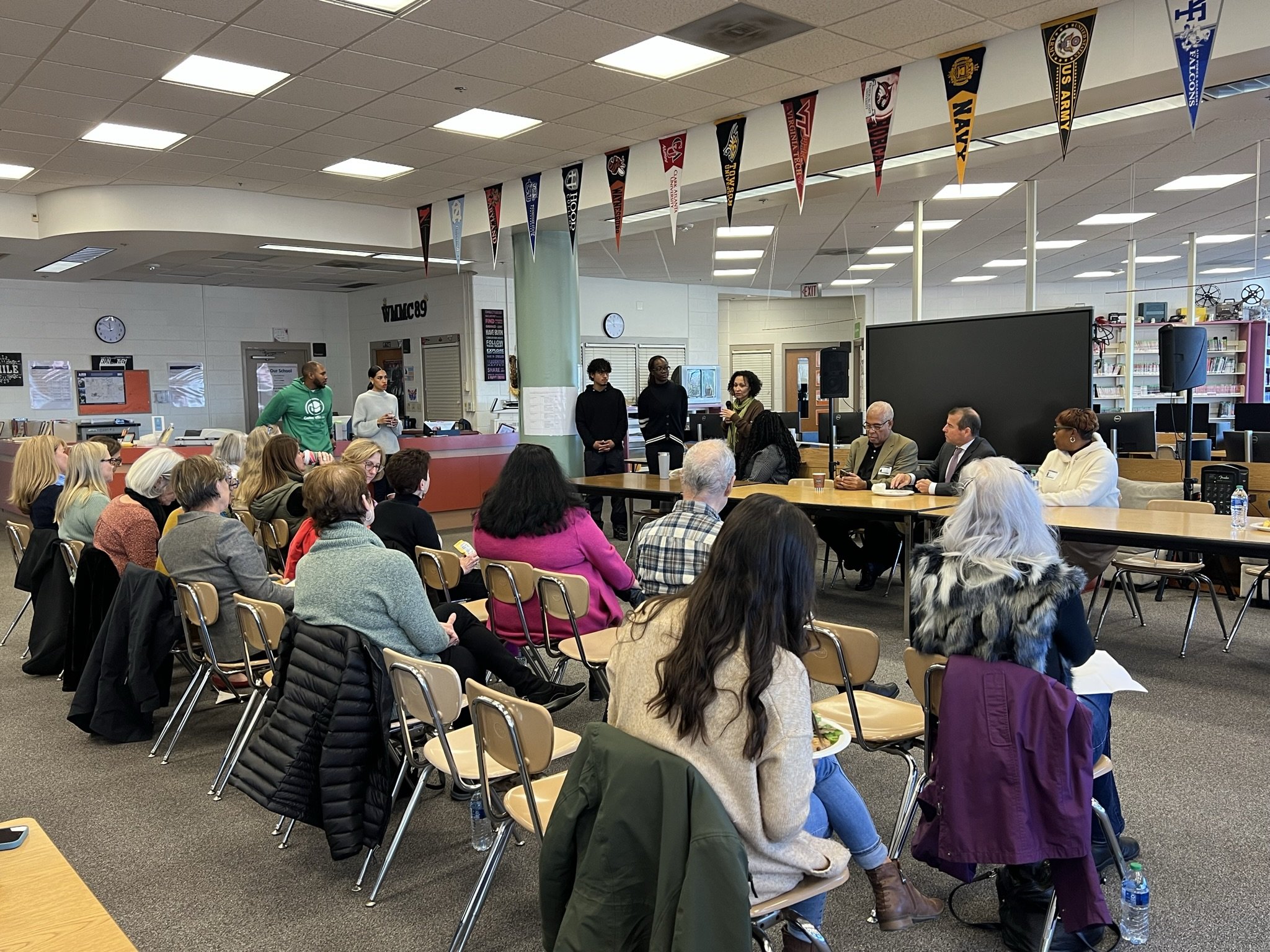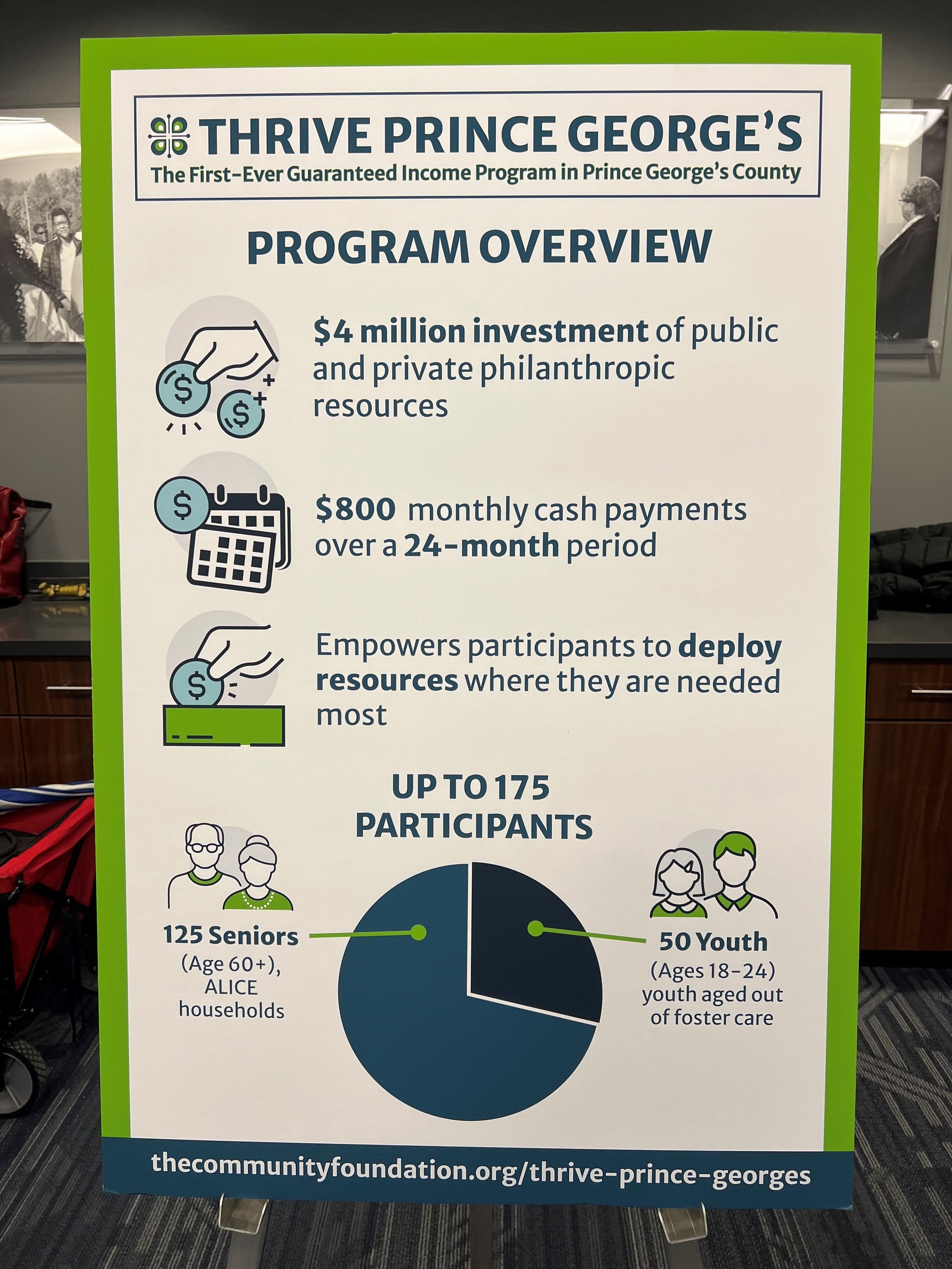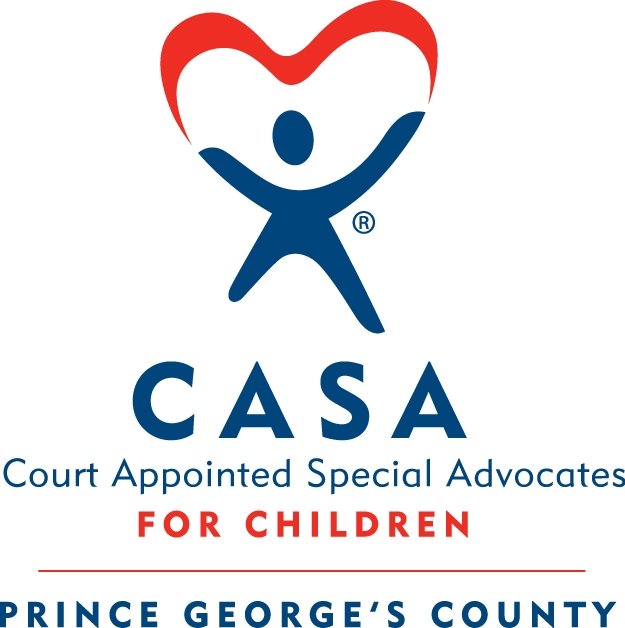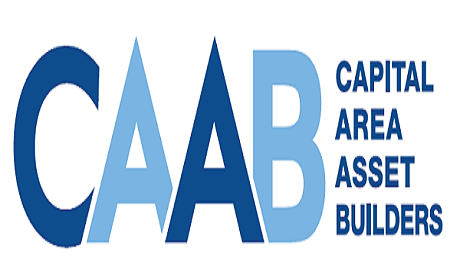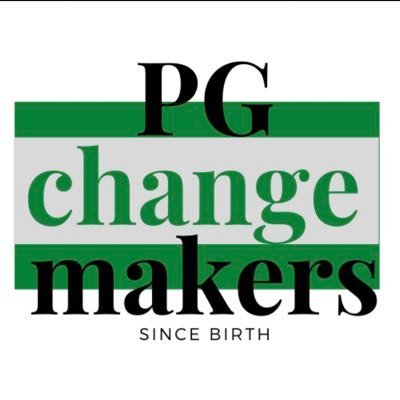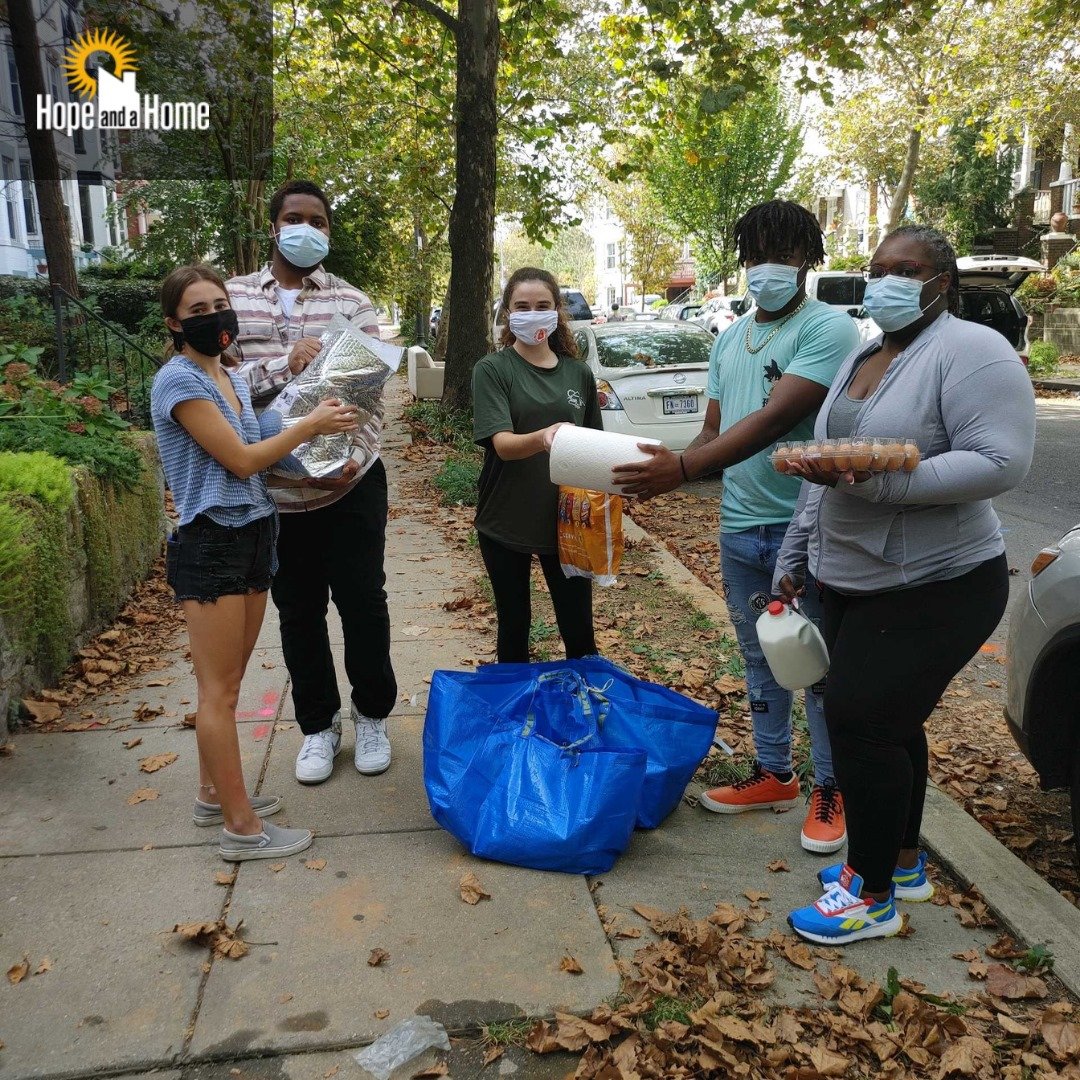2023 was a year full of milestones for The Community Foundation and our community of changemakers – from celebrating our 50th Anniversary at the National Museum of African American History & Culture, to launching the first guaranteed income program in Prince George’s County, to kick-starting a capital campaign for economic justice. Here are some of our most meaningful milestones from 2023.
Celebrating History, Hope & Healing at our 50th Anniversary Celebration of Philanthropy at the National Museum of African American History and Culture
On May 3rd, The Community Foundation hosted the 50th Anniversary Celebration of Philanthropy – celebrating 50 Years of History, Hope, and Healing in the Greater Washington region. Leading up to the celebration, The Community Foundation spotlighted the work of outstanding philanthropic leaders and donors over the course of our organization’s history – past, present, and future – including leaders like Peggy Cooper Cafritz, Vicki & Roger Sant, Bob Linowes, The Honorable Wayne Curry, and others.
Chief among these was our 2023 Spirit of Philanthropy Honoree, Terri Lee Freeman – the longest-serving and first Black female President and CEO of The Community Foundation from 1996-2014. We were delighted to celebrate her legacy during an unforgettable evening at the National Museum of African American History and Culture.
Convening Faith & Philanthropy to foster belonging and strengthen our region
In February, The Community Foundation expanded our dialogue with faith leaders by partnering with The Jewish Community Foundation and other faith leaders to discuss ways in which our region’s Black and Jewish communities can operate with greater alignment, solidarity, and allyship to address antisemitism, anti-Black racism, Islamophobia, and bigotry more broadly.
In June, The Community Foundation hosted the second annual Faith & Philanthropy Summit, which included a dialogue between Christian & Jewish faith leaders from across the region to help set a baseline understanding of reparative justice through the lens of faith traditions.
Looking to 2024, The Community Foundation remains committed to strengthening ties across our region’s vibrant and diverse faith community to foster belonging and build a stronger and more equitable region.
Together, We Prosper: Making a Stand for Economic Justice
In May 2023, The Community Foundation launched Together, We Prosper, a three-year campaign to jump-start our vision of economic justice and build permanent resources to ensure The Community Foundation’s ability to respond to today’s needs and tomorrow’s challenges.
In conjunction with the campaign, The Community Foundation hosted a series of webinars titled "In Pursuit of Economic Justice” – designed to bring together experts to explore innovative approaches to closing the racial wealth gap. The series featured national leaders in the guaranteed income movement and advocates for wealth building programs such as Children’s Saving’s Accounts.
Celebrating Tonia Wellons’ leadership in the greater washington region
In October, we were thrilled to celebrate our President & CEO, Tonia Wellons as she was named to the Washington Business Journal’s 2023 list of “Women Who Mean Business” and Washingtonian Magazine’s 2023 “Most Powerful Women in Washington” in recognition of her outstanding leadership and commitment to racial and economic justice. In honor of her achievements, members of our Board of Directors helped create a special tribute video to celebrate.
Health Equity Fund Celebrates One Year of Transformative Grantmaking
In October, The Community Foundation’s Health Equity Fund celebrated an exciting milestone – awarding more than $21 million in grants to 46 organizations in just 12 months. The fund recently announced a new grant round which aims to award at least twice that amount over the next 3 years – making it one of the most transformative impact funds in The Community Foundation’s history.
Announced in March 2022, The $95 Million Health Equity Fund is dedicated to closing gaps in healthcare as well as addressing social determinants of health (SDOH) that impact health outcomes including education, employment, income, housing, transportation, nutrition, environmental safety, medical care, culture and recreation, and more.
Celebrating Four Years of the Partnership to End Homelessness in DC
This year also marked the fourth anniversary of the Partnership to End Homelessness in DC. Since its launch, the Partnership has leveraged and aligned over $18 million in private sector resources. At the same time, advocacy efforts have resulted in over 4,000 permanent supportive housing vouchers to end homelessness for 3,106 individuals and 1,217 families.
In October, The Partnership hosted friends and supporters at the Festival Center in Northwest DC to discuss the initiative’s progress and hear from advocates and service providers. They also participated in a walking tour of the neighborhood, including several stops at affordable housing projects under development.
championing Philanthropy and economic justice in Prince George’s County
While The Community Foundation celebrated 50 years of impact in the Greater Washington region, it also celebrated the 25th anniversary of its local office in Prince George’s County. Since 1998, The Community Foundation and our fundholders are proud to have invested more than $65 million in Prince George’s County. In October, The Community Foundation gathered with outstanding nonprofit and civic leaders from across the county to celebrate at the 2023 Civic Leadership Awards at MGM National Harbor.
Three weeks later, The Community Foundation gathered again in Largo at the Wayne K. Curry Building to announce the launch of Thrive Prince George’s – the first-ever guaranteed income pilot in Prince George’s County.
The two-year, $4 million initiative will provide monthly payments of $800 to 50 youth (age 18-24) who have aged out of foster care and 125+ seniors (age 60+) for a 24-month period with no strings attached and no requirements tied to employment. Thrive Prince George’s is a public-private partnership that will leverage both public and private philanthropic resources from the Greater Washington Community Foundation, Prince George’s County Executive and Council, and the Meyer Foundation.
Celebrating a Legacy of Philanthropy in Montgomery County
On November 16th, donors and community partners across Montgomery County gathered for the annual Celebration of Giving. The event included a moving memorial tribute to the Founding Executive Director of The Community Foundation in Montgomery County, Sally Rudney who passed away this year – as well as a report on the more than $9.5 million that The Community Foundation’s network of donors gave to nonprofits this past year.
The event also honored Mary Pat Alcus – the 2023 Montgomery County Philanthropist of the Year – for her outstanding contributions to philanthropy in Montgomery County.
Continuing Our Learning Journey at the DMV Community Book Group
Our quarterly DMV Community Book Group hosted several riveting discussions this past year that created invaluable space for conversations with community partners and fundholders around economic and social justice.
In March, we dove into the world of cooperative economics with Dr. Jessica Gordon-Nembhard, Professor at City University of New York and author of the book Collective Courage: The History of African American Economic Thought and Practice.
That was followed by a discussion of Rob Hopkins’ From What Is to What If: Unleashing the Power of Imagination to Create the Future We Want.
We closed out the year in December with Jennifer Vanica, author of Courageous Philanthropy: Going Public in a Closely Held World, as together we explored how to promote sustainable, community-driven wealth building.
Building Community, Fostering Belonging & Sharing Prosperity at the 2023 Annual Meeting
In October, The Community Foundation hosted its 2023 Annual Meeting at the National Press Club. The event capped off another exciting year of growth and community impact for The Community Foundation and its donors and partners – which surpassed $1.7 billion in grantmaking.
The event included a panel discussion around fostering belonging and building community –an important topic that ties into The Community Foundation’s strategic vision and Together, We Prosper Campaign. The panel included Cat Goughnour Racial Equity Fellow at Prosperity Now and Bobby Milstein, Director of System Strategy for the Rippel Foundation.
Ceding Power and Seeding Community Wealth Building in DC Ward 7 & 8
This past year, The Community Foundation, JP Morgan Chase, and our nonprofit partners collaborated to invest in community wealth building in DC Ward 7 & 8.
In August, Martha’s Table announced the second round of grants through the Community Impact Fund, which provided $10,000 grants to high-impact organizations based in Ward 8. The Community Foundation and JP Morgan Chase partnered to match these initial grants through the Equitable Development Fund.
In October, The Community Foundation and JP Morgan Chase convened funders and nonprofit partners at the Marshall Heights Community Development Organization in Ward 7 to hear directly from community partners about the best ways to promote community wealth building and equitable development in DC Wards 7 & 8.

